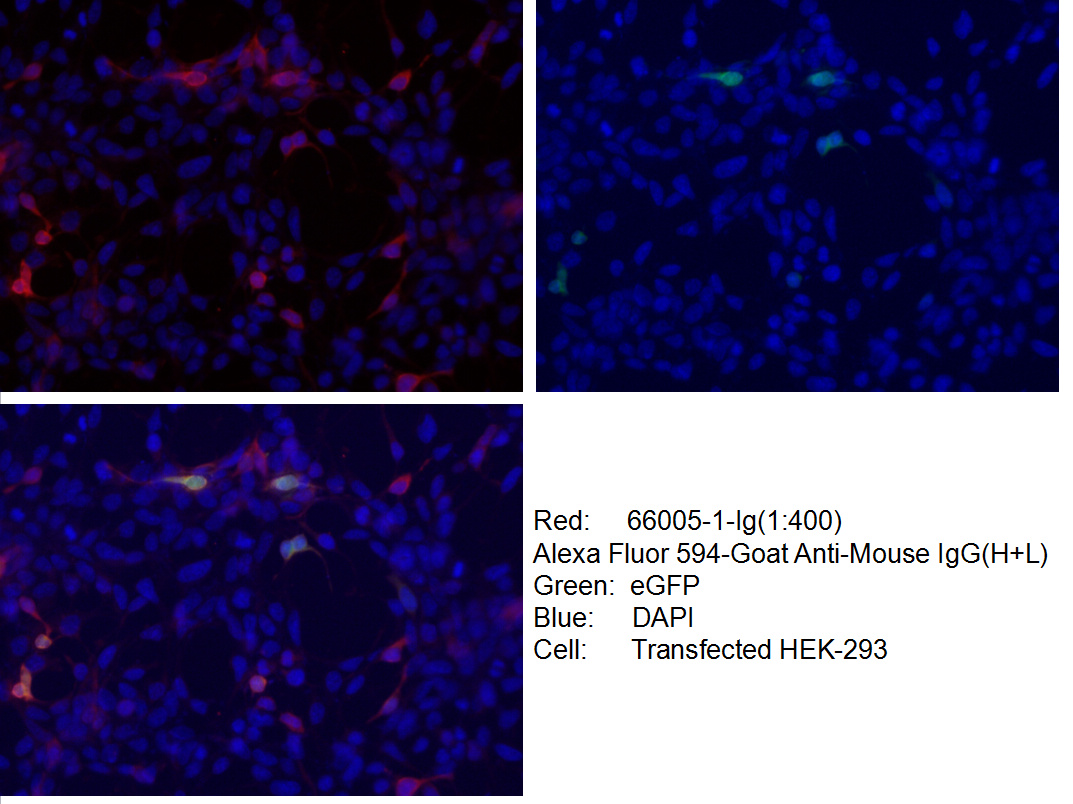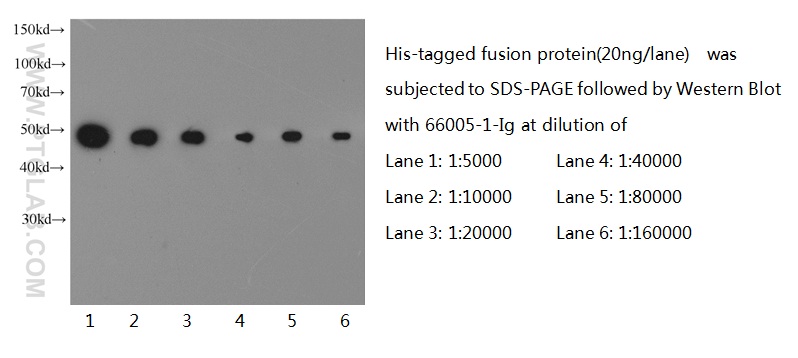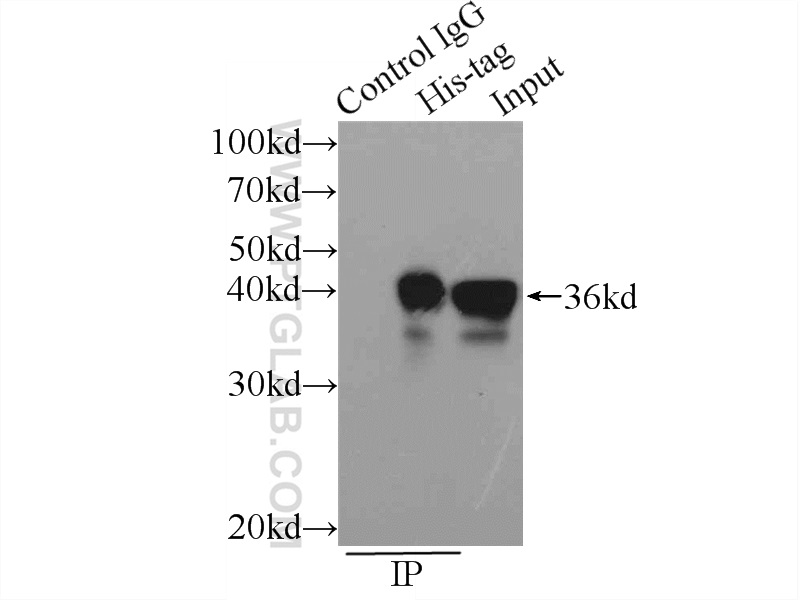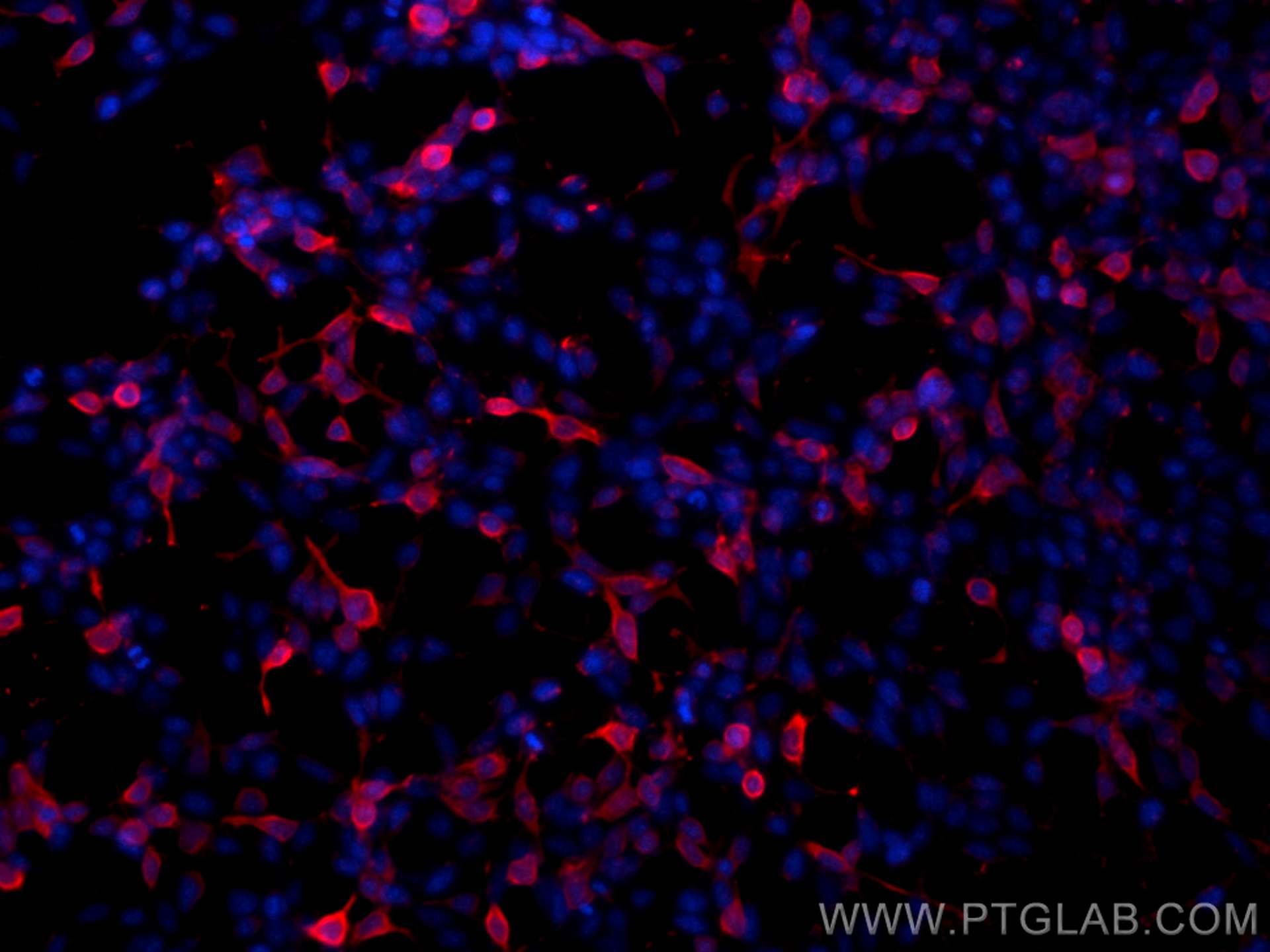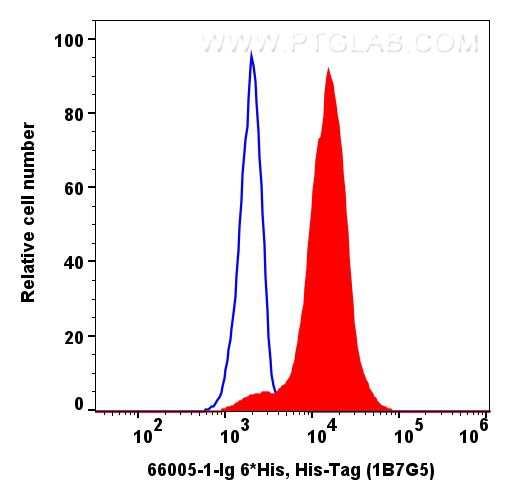验证数据展示
产品信息
66005-1-PBS targets 6*His, His-Tag in WB, IF/ICC, FC, IP, ELISA applications and shows reactivity with recombinant protein samples.
| 经测试应用 | WB, IF/ICC, FC, IP, ELISA Application Description |
| 经测试反应性 | recombinant protein |
| 免疫原 |
Peptide 种属同源性预测 |
| 宿主/亚型 | Mouse / IgG1 |
| 抗体类别 | Monoclonal |
| 产品类型 | Antibody |
| 全称 | 6*His, His-Tag |
| 别名 | 6*His, His Tag, His Tag, 6*His, 6*his tag, 6*his,His tag |
| 计算分子量 | 0.84 kDa |
| 基因名称 | |
| Gene ID (NCBI) | |
| RRID | AB_11232599 |
| 偶联类型 | Unconjugated |
| 形式 | Liquid |
| 纯化方式 | Protein G purification |
| UNIPROT ID | HISTAG |
| 储存缓冲液 | PBS only, pH 7.3. |
| 储存条件 | Store at -80°C. The product is shipped with ice packs. Upon receipt, store it immediately at -80°C |
背景介绍
Protein tags are a protein or peptide sequences located either on the C- or N- terminal of the target protein. His-tag is often used for affinity purification and binding assays. Expressed. The His-tag antibody is a useful tool for monitoring of the His-tagged proteins and recognizes His-tags placed at N-terminal, C-terminal, and internal regions of fusion proteins expressed in bacteria, insect, and mammalian cells. A His-tag (polyhistidine tag) consists of at least six histidine residues that are located at the N- or C-terminus of recombinant proteins. It is commonly used for affinity purification and protein binding experiments.
The recombinant protein has only 6 histidine residues as a tag. Is this sufficient to be detected by your antibody? Is the His-tag antibody able to detect N-terminal and C-terminal His tags?
The His-tag antibody was raised using a 6-His tag peptide as the immunogen, which is ~1 kDa. Some scientists use more than 6 histidine residues as a tag for recombinant proteins to increase affinity to metal ions. A 6-histidine tag is sufficient for specific recognition by the His-tag antibody. It is able to recognize both N-terminal and C-terminal His tags of recombinant proteins produced in various expression systems, including bacteria, yeasts, insect, and mammalian cells.
After purification, I can detect my protein by western blotting using the His-tag antibody but can also see additional bands running lower. What might they represent?
They may represent cleavage products of the recombinant protein. Unspecific protein cleavage can occur during protein production (e.g., in bacteria) or protein purification post the cell lysis steps. Changing expression conditions (temperature, time, induction methods, medium) and using protease inhibitors during purification helps to minimize protein degradation. Additional steps, such as ion exchange, size exclusion, or chromatography, allow isolation of the full-length product.
Can a His-tag antibody be used in applications other than western blotting?
Yes, this antibody has been successfully used for immunofluorescence (IF), immunoprecipitation (IP), and indirect ELISA analysis.

